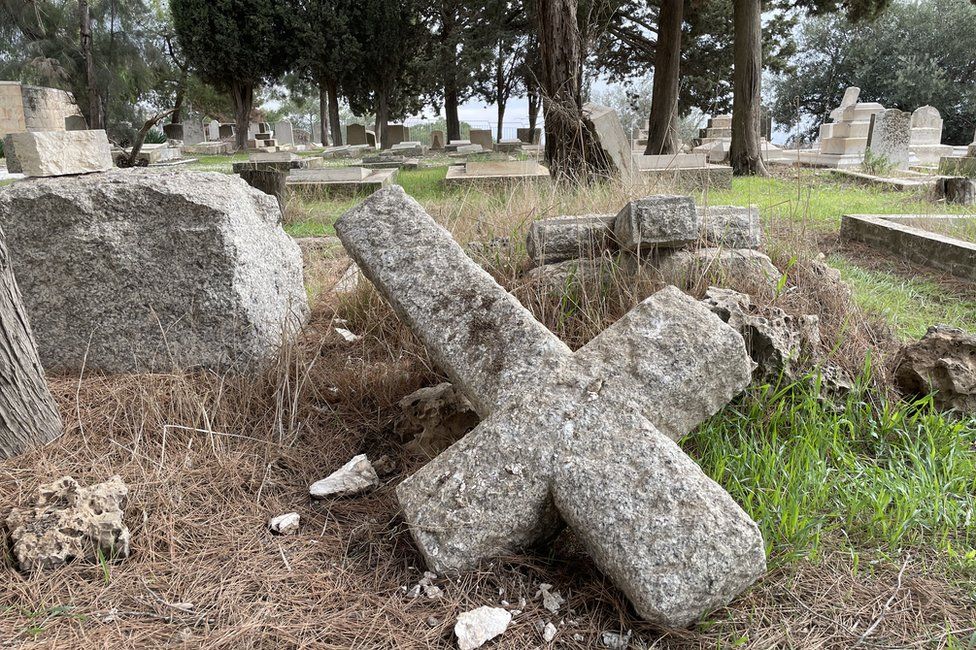The Bahá’í Faith, an independent world religion founded in the 19th century, emphasizes the oneness of humanity and the necessity for co-existence among diverse cultures and beliefs. Central to its teachings is the idea that spiritual principles should guide the actions of individuals and nations alike. This perspective creates a poignant commentary on the hypocrisy found in the actions of various governments, particularly concerning the treatment of sacred sites and the fundamental dignity associated with human beings and their final resting places. In addressing the issue of grave desecration, particularly in the context of Iran, it is essential to explore the Bahá’í principles related to coexistence, justice, and the sanctity of all lives, regardless of belief.
In recent events, the desecration of graves has drawn attention to the broader questions of religious tolerance and respect within Iranian society, where a minority faith such as the Bahá’í community has long been persecuted. The Bahá’í teachings emphasize the importance of upholding the sanctity of life, which extends into how societies treat the memories and resting places of the deceased. The act of desecrating graves is fundamentally at odds with these teachings and reflects a profound disrespect for human dignity.
1. The Sanctity of Burial Sites
According to Bahá’í teachings, every individual is created in the image of God and therefore possesses an inherent sanctity. Burial sites, as the final resting places of individuals, are to be treated with utmost respect. The Bahá’í Writings implore adherents to honor the deceased and care for their final resting places, reflecting a fundamental belief in the sanctity of all human life. This principle inevitably challenges any acts that constitute desecration, condemning them as not only acts of violence against the deceased but also as manifestations of spiritual ignorance.
The preservation of graves and burial sites serves a dual purpose: it respects the memory of those who have passed and reinforces the communal values of compassion and empathy within society. This contrasts sharply with the actions of those who have desecrated graves—a reflection of deeper societal issues regarding intolerance, hatred, and ignorance. Such acts perpetuate cycles of violence and enmity, undermining the very social fabric that communities rely on for cohesion and peace.
2. Coexistence and Interfaith Dialogue
The Bahá’í teachings articulate a clear call for global coexistence and interfaith dialogue. The underlying premise is that humanity’s diverse beliefs and practices are part of a divine mosaic, reflecting varying paths toward spiritual truth. In the context of Iran, where religious minorities often face persecution, the need for coexistence becomes ever more urgent. The hypocrisy lies in a state that publicly advocates for religious tolerance while simultaneously enacting policies that undermine this principle, particularly against the Bahá’í community.
Interfaith dialogue is crucial in cultivating understanding and respect. Engaging in conversations that cover the shared values among different faith traditions not only creates pathways for reconciliation but also highlights the significance of human rights across religious boundaries. The Bahá’í teachings encourage followers to engage actively in such dialogues, nurturing a culture built on respect rather than fear.
3. The Role of Justice in Spiritual Teachings
Justice is a cornerstone of Bahá’í teachings, reflecting divine attributes and emphasizing the need for fairness and equity in social and political structures. The unjust act of desecrating graves symbolizes a broader failure of justice within society. A just society cannot, and should not, permit the dishonoring of any individual’s memory, especially not the marginalized or persecuted.
The Iranian government’s failure to protect the sacred sites of the Bahá’í community, while espousing the values of justice and equality, raises questions regarding its commitment to its stated principles. This dissonance showcases the need for accountability and a re-evaluation of the laws and practices that govern freedoms of belief and expression.
4. The Impact of Cultural and Religious Hypocrisy
The implications of cultural and religious hypocrisy extend beyond individual actions to impact society at large. The desecration of graves can be viewed as a metaphor for the erosion of shared values that unite people across distinctions of faith, culture, and ideology. When institutions of power fail to uphold justice and exhibit hypocrisy in their actions, they undermine social cohesion and trust.
This hypocrisy can lead to a normalization of violence and intolerance, resulting in societal fragmentation. Bahá’í teachings advocate for a cohesive societal fabric that embraces diversity while striving for unity. In light of this, it becomes imperative to challenge and educate against such discrepancies, advocating for an ethical framework that aligns actions with proclaimed beliefs.
5. Concluding Thoughts: Cultivating a Culture of Respect
In conclusion, the Bahá’í perspective on desecration of graves serves as a poignant reminder of the essential principles of coexistence, justice, and respect that should guide human interactions. The hypocrisy exemplified by the Iranian government’s stance serves only to further alienate communities and perpetuate cycles of misunderstanding and intolerance. The call for a collective re-evaluation of values is necessary—a shift towards fostering an inclusive environment where the sanctity of life, regardless of belief, is honored and celebrated.
To create a lasting change, society must champion the principles of respect and sacredness in all realms, from burial practices to interfaith dialogues. Only by aligning our actions with our values can we hope to foster a world imbued with peace and understanding, truly reflecting the teachings of unity that the Bahá’í Faith ardently promotes.
